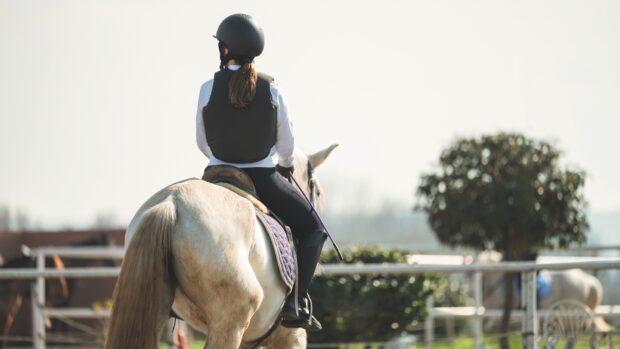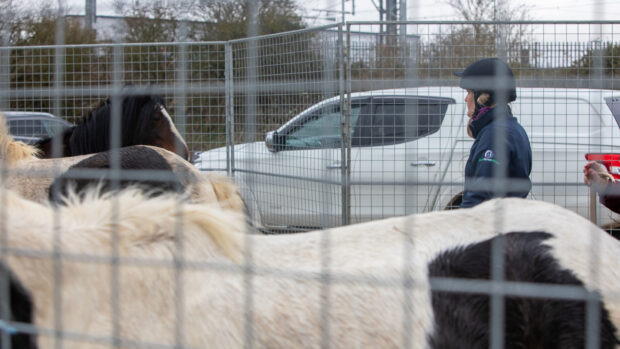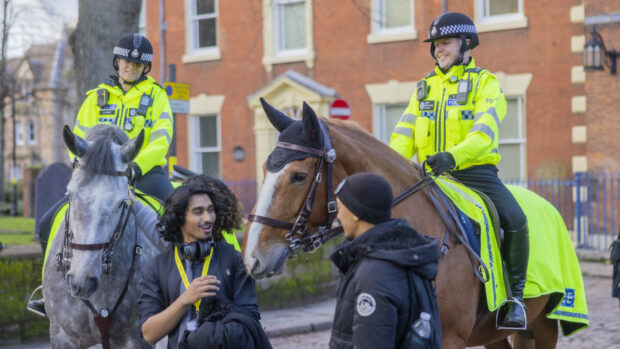EQUINES “need to part of future plans to cope with climate change” leading global welfare organisations have stressed from COP26.
The Donkey Sanctuary and World Horse Welfare, party of the newly formed Working Animal Alliance (WAA), were at the 2021 United Nations Climate Change Conference, known as COP26 (31 October-12 November), to ensure animals are considered in the battle against global warming. They were also working to ensure the health and safety of working animals is included in negotiations and pledges made at the conference.
An estimated 500 million people in the world’s most vulnerable communities rely on working equines as a lifeline to support their livelihoods.
From COP26, Ian Cawsey, director of advocacy and campaigns at the Donkey Sanctuary told H&H that there are more than 40 million working donkeys and in many parts of the world they are integral to sustainable living and crucial to emergency responses as well as recovery from climatic events.
“Along with one of our partners, World Horse Welfare, we are explaining how donkeys, horses and mules need to be part of future plans to cope with climate change,” he said, adding that the conference had been a “heartening experience so far”.
“On a practical note we have formed the WAA to bring together governments, departments and other organisations to seek a consensus on how we value and understand the role working animals play and how we protect them from the challenges of climate change. COP26 is great chance to talk to global players to expand the alliance and benefit from the knowledge and expertise of those gathered here in the UK.”
The organisations are pushing “three key issues” involving donkeys for governments to consider.
“Firstly, they help create the sustainable livelihoods desired, secondly, donkeys are as vulnerable to climate change as anyone else in the communities they support so must be included in disaster planning, and thirdly, donkeys and mules are key to emergency response and recovery plans,” he said.
“With over 40 million working donkeys worldwide someone needs to speak for them, which is what the Donkey Sanctuary team will be doing at COP26”.
Debbie Warboys, international programme officer at World Horse Welfare, added that working equids are a “vital and often overlooked” part of life for communities around the world.
“Their role in climate change resilience and adaptation is also often ignored,” she told H&H.
She added the organisations have been raising awareness of the key role working equids play in providing sustainability in many areas, and ensuring that they are not forgotten when developing policies that seek to build a more sustainable world.
“Having the opportunity to speak with representatives from governments, organisations and NGOs of countries where World Horse Welfare has community-led programmes, it was clear that many hadn’t considered the impact of these vital working animals,” she said.
“Neither had they considered that equids could be part of the solution to climate change and we were able to use key findings from our international programmes to demonstrate their contribution.
“Both humans and animals are encountering new challenges and facing devastating impacts from climate change and World Horse Welfare’s hands-on work with community-led work in many countries allows us to draw from these experiences to inform the discussion.”
You might also be interested in:

Owners dress donkeys in trousers and shirts to beat deadly fly menace

Donkeys saved from skin trade slaughter had missing ears, infections and open wounds
Six people been found guilty of animal cruelty, and of living in South Africa illegally.

Subscribe to Horse & Hound magazine today – and enjoy unlimited website access all year round
Horse & Hound magazine, out every Thursday, is packed with all the latest news and reports, as well as interviews, specials, nostalgia, vet and training advice. Find how you can enjoy the magazine delivered to your door every week, plus options to upgrade your subscription to access our online service that brings you breaking news and reports as well as other benefits.




